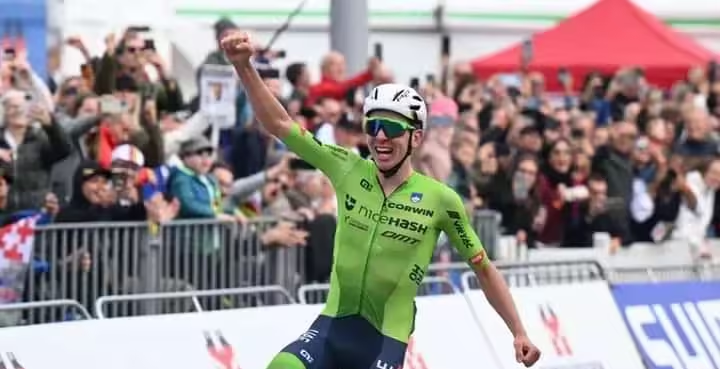Following the 2024 World Championships, Lance Armstrong and Johan Bruyneel shared their thoughts on the current rivalry between cycling stars Tadej Pogačar and Jonas Vingegaard. Armstrong and Bruyneel, both influential figures in cycling, believe that Pogačar is a level above his Danish rival, Vingegaard. Armstrong emphasized that while many fans and analysts tend to place Pogačar and Vingegaard on the same pedestal, this is not accurate. He argued that Pogačar has a more versatile skill set and consistently displays an unmatched competitive edge, particularly during crucial moments in races.
Bruyneel went a step further, suggesting that Pogačar’s most dangerous competitor is not Vingegaard, but Pogačar himself. His aggressive and fearless approach can sometimes backfire, as seen in some of his past races where he took unnecessary risks. Bruyneel expressed admiration for Pogačar’s talent but also cautioned that his aggressive tactics could cost him in long-term rivalries if he doesn’t adapt his strategy.
Both Armstrong and Bruyneel agreed that while Vingegaard is a formidable climber, especially in the high mountains, Pogačar’s all-around abilities, including his power in time trials and his aggressive racing style, set him apart. They also highlighted that Vingegaard’s success in recent Tours de France, including his victory over Pogačar in 2022 and 2023, stemmed from a more measured, consistent approach, rather than outshining Pogačar in raw talent.
The duo also touched on the strategic aspects of Pogačar’s team, UAE Team Emirates, critiquing some of their decisions during races. Armstrong, in particular, questioned the tactical meetings of Pogačar’s team, implying that some of their strategies did not make sense in the context of the race, which could have affected the outcomes in certain instances.
In summary, Armstrong and Bruyneel maintain that Pogačar is still a superior rider compared to Vingegaard, but his impulsive style and occasional team strategy missteps can open opportunities for his rivals. Their analysis highlights the delicate balance between raw talent and strategy in cycling’s top echelons.
